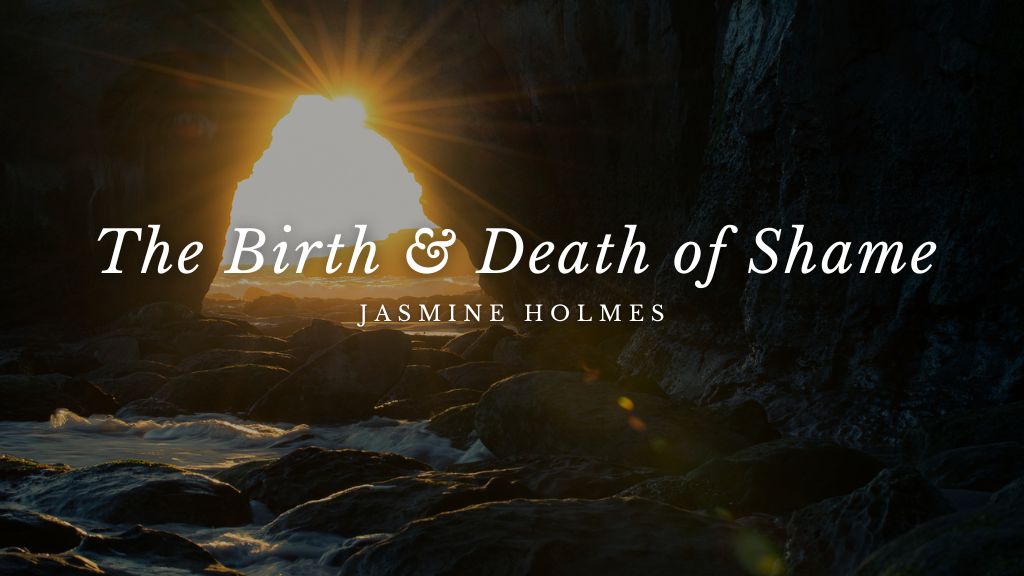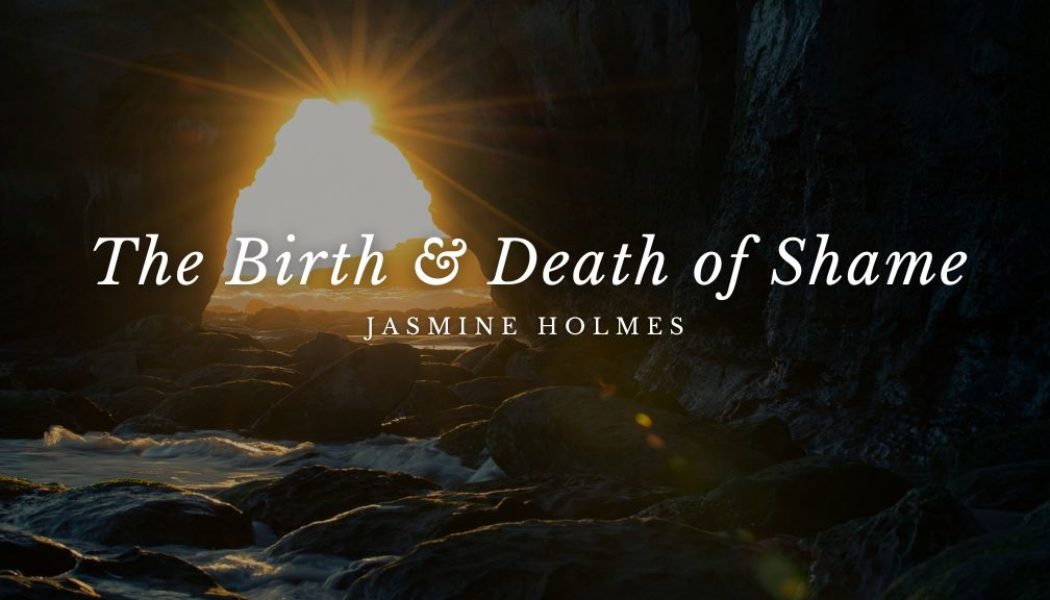
“The Bible tells me that knowing the truth will set me free, and Your wonderful counseling is freeing me from sin and shame.”
– Jesus Listens, October 9
Shame has been a background noise in my life—a low and persistent hum. But where did shame start?
God created Adam and Eve in His own image, perfectly crafted to commune with Him for all eternity. But, of course, they didn’t stay that way. Just a short time after God placed Adam and Eve in the garden and laid out their purpose in creation, that purpose was tragically derailed by something called the fall. You likely know the story.
Entire commentaries could (and have) been written on just the first three chapters of the Book of Beginnings, but I want to focus on what happened directly before and directly after Adam and Eve disobeyed God. Here’s the state of affairs before they disobeyed:
Adam and his wife were both naked, and they felt no shame. —Genesis 2:25 NIV
Eyes opened
Now, here’s the state of things right after they disobeyed:
Then the eyes of both of them were opened, and they realized they were naked; so they sewed fig leaves together and made coverings for themselves.
Then the man and his wife heard the sound of the Lord God as he was walking in the garden in the cool of the day, and they hid from the Lord God among the trees of the garden.But the Lord God called to the man, “Where are you?”
He answered, “I heard you in the garden, and I was afraid because I was naked; so I hid.” —Genesis. 3:6–10 NIV
Before disobedience
Do you see the change? Before disobedience, Adam and Eve were naked, but they didn’t know it. They didn’t feel exposed. The only other being who saw them unclothed was their Creator. And so “they felt no shame.” That’s the picture of humanity when sin isn’t part of the equation: no shame.
And then, after disobedience, they suddenly “knew” they were naked. They felt exposed for the first time in their entire lives. Embarrassed.
And somewhere between that moment of disobedience and the moment of hiding, guilt and shame were born.
Shame is feeling, not fact
Adam and Eve were guilty the moment they disobeyed God’s boundary about the fruit, whether they felt badly about it or not. Guilt is a state of being, regardless of feelings. You either are guilty, or you’re not.
Contrast this with shame, which, as we see in the passage above, is primarily an emotion and not a state of being. Shame is feeling, not fact.(Notice that Genesis 2:25 says they felt no shame.) The fact was that Adam and Eve had sinned. The feeling was the awareness of their nakedness—and their nakedness was symbolic of their shame.
And so what do they do with such a feeling? Adam and Eve acted quickly and foolishly, hiding themselves from the God of the universe in the garden He had created. They covered their nakedness, and waited in fear for the coming of their Lord.
Hand-molded
Think of the illogic of Adam and Eve’s decision. They have been hand-molded by a loving Father who has given them every good thing. Yes, they have disobeyed Him and breached the one boundary He has given them—they are guilty. But rather than throw themselves upon the mercy of a God whom they know is good (everything about their existence has proven this), they hide.
Notice how God pulls them out of their isolation. He asks a question to which He, of course, already knows the answer: “Where are you?” (Gen. 3:9 NIV).
In His mercy, God gives them an opportunity to be honest about what happened. Yet, in their shame, they pass blame—Adam to Eve, and then Eve to the serpent.
Fractured by guilt
What was once a beautiful connection between God and humankind has been fractured by guilt and shame—the emotional impulse to hide wrongdoing for fear of embarrassment.
As Adam fears, all three of them—Adam, Eve, and serpent— receive consequences. But the story doesn’t end with defeat. God bridges the chasm of isolation that shame has created when He tells the serpent:
And I will put enmity between you and the woman, and between your offspring and hers; he will crush your head, and you will strike his heel. —Gen. 3:15 NIV
In those five lines, God promises to set right everything that the first sin destroyed. He promises someone is coming—Someone who will be born from this woman’s bloodline. And God promises the serpent that this specific “Someone” born of Eve will crush the head of the serpent. Those of us on the other side of the New Testament know who this “Someone” is. But the point is that immediately after their disobedience, God is kind and provisional, prophesying the death of sin and shame. He issues a consequence for violating a boundary, but He also gives them a promise that the consequence is not forever.
Adapted and excerpted with permission from Never Cast Out by Jasmine L. Holmes. Copyright 2023, B&H Publishing
About The Author

Jasmine L. Holmes is the author of Carved in Ebony: Lessons from the Black Women Who Shape Us and Mother to Son: Letters to A Black Boy on Identity and Hope. She is also a contributing author for World on Fire: Walking in the Wisdom of Christ When Everyone’s Fighting About Everything; Identity Theft: Reclaiming the Truth of Our Identity in Christ; and His Testimonies, My Heritage: Women of Color on the Word of God. Jasmine and her husband Phillip are parenting their children in Jackson, Mississippi. Connect with her online: https://jasminelholmes.com.









